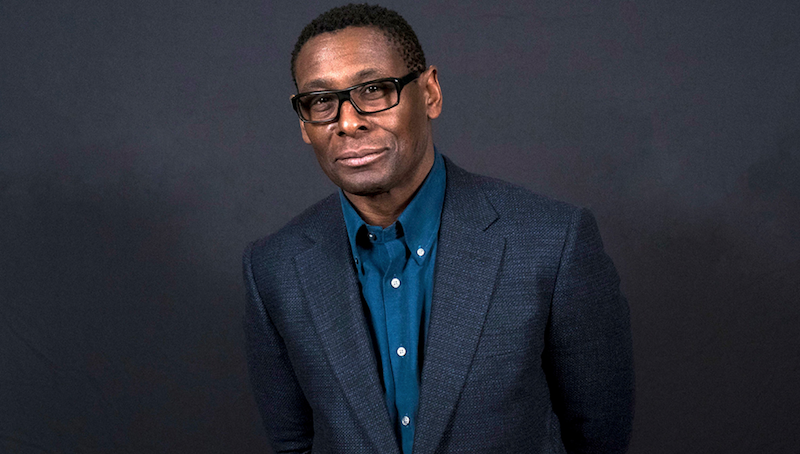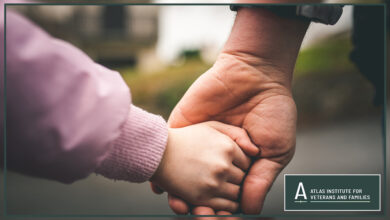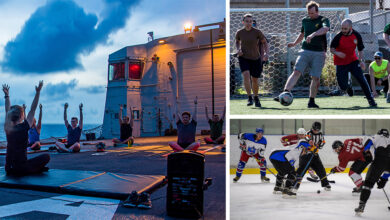Health and Wellness
Mental Health Resources available for CAF Personnel and families as World Suicide Day raises mental health awareness
Observed on September 10th, every year, World Suicide Prevention Day (WSPD) provides the opportunity for people worldwide to raise awareness of suicide and suicide prevention.
Suicide impacts people of all ages and backgrounds in Canada. Every day, an average of more than 10 Canadians die by suicide. For every person lost to suicide, many more experience thoughts of suicide or suicide attempts.
For every death by suicide, at least seven to 10 survivors are significantly affected by the loss. Over 800,000 people die by suicide annually worldwide, representing one person every 40 seconds.
“Suicide prevention is a priority for the Canadian Armed Forces and Veterans Affairs Canada, and we are proud of the progress made on this issue through our Joint Suicide Prevention Strategy, including the following during fiscal year 2019-2020.” Minister of National Defence Harjit S. Sajjan
And suicide is the 15th leading cause of death globally, accounting for 1.4 per cent of all deaths.
Minister of National Defence Harjit S. Sajjan noted in a statement to mark the occasion, “Key findings from the third annual Veteran Mortality study show that the suicide rate for the Veteran population is higher than that of the Canadian general population. While there are no easy solutions, we remain committed to taking meaningful action on this complex issue by reducing risks and building supports to assist Veterans with their health and wellbeing.”
He added, “Suicide prevention is a priority for the Canadian Armed Forces and Veterans Affairs Canada, and we are proud of the progress made on this issue through our Joint Suicide Prevention Strategy, including the following during fiscal year 2019-2020.”
Joint Suicide Prevention Strategy Additions
Hired additional staff hired for mental fitness and suicide awareness training;
Created more awareness for the mental health supports offered through the You’re Not Alone web page, and offered programs that provide more online support for members and their families.
The International Association for Suicide Prevention (IASP) stated on their website, “Effective suicide prevention strategies need to incorporate public health policy strategies and healthcare strategies, incorporating measure with the strongest evidence of efficacy.”
Effective suicide prevention strategies include:
-
-
- Restriction of access to lethal means
- Treatment of depression
- Ensuring a chain of care
- School-based universal prevention
-
People can participate in initiatives like Cycling Around the Globe from September 10 to October 10, 2020, to raise awareness of the risks of suicide and fund suicide prevention activities.
To mark the day this year, IASP released Step Closer: A World Suicide Prevention Day Awareness Film. The film will premiere online and on social media channels from September 1, 2020. It will be disseminated throughout WSPD on September 10 and available till World Mental Health Day on October 10, 2020.

David Harewood, MBE, British actor, BAFTA nominee, and documentary maker, provided the voiceover for Step Closer.
He said, “The Step Closer film holds a strong, yet positive, message for World Suicide Prevention Day. As an advocate for mental health and suicide awareness, I was eager to be involved and to contribute to this initiative. Suicide is complex, and this film seeks to empower discussions, reduce stigma, and educate communities.”
The film is available for all to download and share.
In past years, over 300 activities in approximately 70 countries were reported to IASP, including educational and commemorative events, press briefings and conferences, and Facebook and Twitter coverage.
The International Association for Suicide Prevention (IASP) organizes WSPD, with the WHO being a co-sponsor.
IASP is dedicated to preventing suicide and suicidal behaviour, alleviating its effects, and providing a forum for academics, mental health professionals, crisis workers, volunteers, and suicide survivors.
WHO’s primary role is to direct and co-ordinate international health within the United Nations system. They work in health systems; health through the life-course; non-communicable and communicable diseases; preparedness, surveillance and response; and corporate services.
IASP is inviting the public to browse their site to find WSPD banners, the World Suicide Prevention Day brochure, WSPD suggested activities, Light a Candle postcards, #WSPD facts and figures, and other resources including: lapel pins, wristbands, and key chains.
Resources Available for Military & Family Members
If you or someone you know requires emergency mental health assistance, call 911, accompany them, or have someone accompany you to your local emergency department.
For less urgent needs, help is available to military personnel at the nearest Canadian Armed Forces (CAF) health clinic. Serving members, Veterans, and civilian employees can respectively call 1-800-268-7708 for the CAF Member Assistance Program, the Veterans Affairs Canada (VAC) Assistance Service, the Employee Assistance Program (EAP), and the EAP peer referral service. All these services are free of charge and available 24 hours a day, 365 days a year.
VAC has a well-established national network of approximately 12,000 community mental health professionals who deliver mental health services to eligible Veterans and serving and released RCMP officers with post-traumatic stress disorder or other mental health conditions. Additional VAC services include a network of 11 operational stress injury clinics across the country. The CAF network of seven Operational Trauma and Stress Support Centres, which cater primarily to currently serving military personnel, complements these clinics.
The VAC-CAF Operational Stress Injury Social Support program provides peer-based support to those suffering from operational stress injuries and their families. The program employs full-time peer support and family peer support co-ordinators, and also has a well-developed volunteer training and mentoring program.










